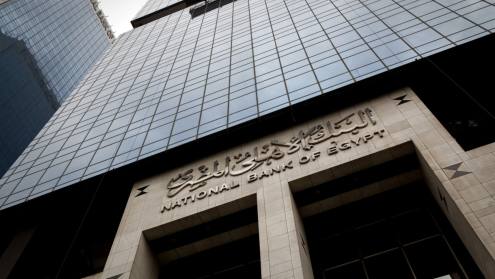Towards the end of last year, Angola’s largest private bank by assets, Banco Africano de Investimento (BAI), raised $1bn for the government’s reconstruction of the nation’s infrastructure. It was a landmark transaction that attracted support both locally and from across the world. Investors from South Africa, Portugal and the UK were, in the words of BAI chief executive José de Lima Massano, literally begging to participate.
“It was our biggest transaction ever. No other bank that I know of in Africa has achieved what we did,” he says.
The loan was one of a string of deals the bank pulled off last year, which included a $400m loan to the ministry of finance to build roads and a $150m loan to state-owned oil giant Sonanagol.
For Mr Massano, the appetite for these kinds of deals is unlikely to diminish this year. “Everyone is willing to take a piece of the cake,” he says. “There is still room for transactions of the same size. In fact, we’re preparing something almost the same size as the $1bn deal for another company, but this time in local currency. That will be the big test.”
BAI’s burst of activity is indicative of the wider growth and development of Angola’s banking industry. According to the Angolan central bank, there are now 19 banks operating in the country, up from just six in 2002. The sector is dominated, however, by five key players that make up almost 85% of the sector’s total deposits. They are: BAI, Portuguese-owned banks Banco Fomento Angola (BFA) and Banco Espirito Santo de Angola (BESA), the state-owned Banco de Poupanca e Credito and the recently established local bank Banco Internacional de Credito.
New entrants are also vying to get into the market. According to KPMG, the central bank is looking at more than five requests for new banking licences. These are likely to include international players, such as Standard Bank and Standard Chartered. The government is keen to encourage more overseas banks into the sector but requires them to be at least 49.9% owned by a local partner.
Growing pains
Asset growth in the sector as a whole has been substantial since 2002, increasing by an average of 40% a year. According to the latest figures from KPMG, total assets in Angolan banking now stand at Kz832bn ($11bn). The survey also shows that during the first eight months of 2007, total credit granted grew by 50% and deposits by 30%.
“The market is growing both in terms of deposits and credit,” says BFA chief executive Emidio Pinheiro. “I suspect this will continue in the coming years. We are building branches, training staff and investing in new systems.” He adds that BFA’s Angolan customer base grew by 140,000 last year.
Despite this growth, Angolan banking remains in its infancy. The majority of loans are made to corporate customers, and the absence of a credit bureaux means that the retail sector is practically non-existent outside Luanda. It also faces tremendous growing pains, not least the shortage of trained people.
“We have the structure, the brands, the buildings, but not the people. It is very difficult at the moment to find people who understand banking,” says BESA chief executive Álvaro Sobrinho.
The solution for this is training, but this takes time – often up to a generation. “Angola has to take the decision to import the talent for the short-term for the development of the country,” says Mr Sobrinho. He sees Portugal as a natural ally in the search for skills, due to the cultural and language links, but he also sees Spain and even the UK as potentially rich pools of talent.
Dual currency
A shortage of talent is not the only obstacle to development of Angola’s banking sector. For Mário Maximino, a former minister of planning and now chief executive of the Banco Santander-owned Banco Totta de Angola, one fundamental barrier to a healthy banking system is the presence of a dual currency.
“There are two currencies: the kwanza and the dollar,” he says. “Inflation is still too high and there is no client that wants loans in kwanza because interest rates are about double the rate they are in US dollars.”
Interest rates on kwanza are sitting at about 17%, while dollar rates are just 7.5%. As long as this situation remains, it is hard to see customers flocking to borrow in the local currency. Out of the total amount of money held in banks in Angola, 64% is held in dollars. “The central bank allows enterprises to hold accounts in dollars so it won’t be so soon that this struggle between kwanza and dollars will stop,” says Mr Maximino. “The first step is to lower the inflation rates, and then to create more economic stability over a longer period so that people begin to trust kwanza again.”
The next step for the Angolan banking sector is to grow enough to be able to participate in the country’s booming oil industry. At present, it is almost completely absent from the oil sector because most of the oil majors hold their money in accounts overseas.
“The only banking that oil companies do in Angola is for small local services, such as payroll,” says Mr Maximino. “This explains why the assets of Angolan banks are so low.”
The government is taking steps to encourage oil companies to use Angolan banks, and if successful, this could lead to a surge in assets for Angolan banks and transform the industry. Even if this does happen, however, it is likely they will all open dollar, rather than kwanza, accounts.
Stock exchange calls
To many observers, the Angolan financial sector cannot move forward until an effective stock exchange is established. Companies’ inability to raise money through equity issuance makes it hard both for businesses to grow and for investors to find a home for their money. A stock exchange would also encourage a more transparent culture and breed better corporate governance.
“There are no real financial investment alternatives in this country,” says Luís Folhadela, an associate director of financial advisory services for KPMG in Angola. “A stock exchange would allow an effective channelling of the savings and investment of the country and match the needs of investors and the people.”
According to Mr Folhadela, the absence of a stock exchange is damaging the economy. “At the moment, total credit divided by total deposits is 67%, so that means banks are only applying 67% of their deposits.
“It is hard to invest in Angola because there are no alternatives. It means money is invested abroad or in real estate at home,” he adds.
The government has made some substantial moves towards setting up an exchange. In 2005, it passed a securities exchange law and hired KPMG to advise it. Since that time, however, little has been done. In an interview with The Banker (see page 13), the governor of the central bank, Amadeu de Jesus Castelhano Mauricio, said that he felt Angola was not yet ready for a stock market. He suggests that corporate governance and transparency in Angola are insufficient to merit the establishment of an exchange. Others fear that it could attract hot money into the country and lead to a boom-and-bust culture too early on in the nation’s economic development.
Mr Folhadela disagrees. “There is no operational, technical or human resource justification for this country not to have a stock market in six months,” he says.
Retail push
For an exchange to work truly efficiently, however, it is necessary for Angola to open its banking to the mass of ordinary people. Most banks admit that just 20% or less of their deposit bases are made up from individual accounts. That is not to say, however, that efforts are not being made to bring more Angolans into the formal economy, and not just in Luanda.
Mr Massano says that after an initial focus as a pure investment bank, BAI decided to transform itself into a universal bank. It now has 50 branches across Angola. Similarly, BFA is establishing branches across the country.
“I have been in Angola three years. When I arrived, the bank had one branch in Lobango [a southern town]. We now have five branches and we will continue to grow there,” says Mr Pinheiro.
BESA’s Mr Sobrinho says that his bank’s strategy is to build a branch in every region in Angola. Expanding retail branch networks, however, puts pressure on banks’ human capacity.
“You cannot go too fast, you have to go step by step,” says Mr Pinheiro. “You have to have trained people both here and in the central bank and you cannot train people quickly.”
Bright prospects
Looking ahead, Angola’s banks have enormous potential to flourish. The country’s non-oil sector is growing faster than the oil sector and the opportunities for financing are numerous. If the government chooses to use local banks to help finance its monumental infrastructure needs, then the banking sector will go from strength to strength.
This cannot happen, however, until the banking system achieves more scale. Most local banks are tiny, and with a minimum capital requirement set at a paltry $5m, there is absolutely no incentive for banks to grow.
BAI’s Mr Massano believes that Angola’s banks need to modernise, and it is the central bank that must lead the way. “We need to put Angola in the context of today’s developed financial industry and in order to do that, you have to comply with international rules,” he says. “BAI has to adopt procedures that still have not been established by the central bank. International banks don’t want to see you as bringing risk if you are dealing with them. The more our banks are exposed to international rules, the more the central bank will have to adapt.”
Similar to Angola itself, the banking sector is only just emerging from 30 years of war and Marxism. There is much to do, but also a profound willingness among the banking community to get the job done.
“People were sick and tired of war by 2002. When [UNITA leader] Jonas Savimbi was killed, the war ended almost overnight,” says Mr Massano. “You can go everywhere in the country now and see progress. People are going places. We are discovering Angola.”











